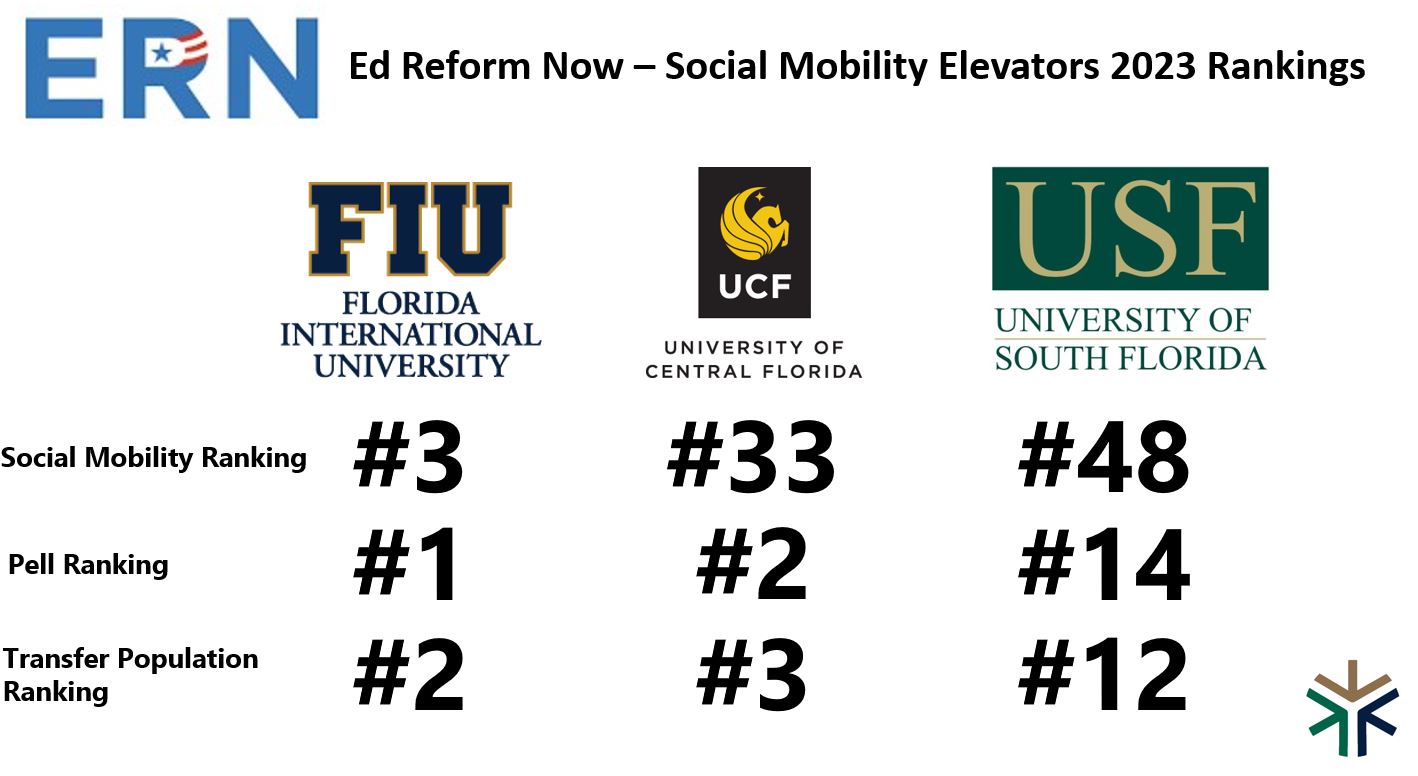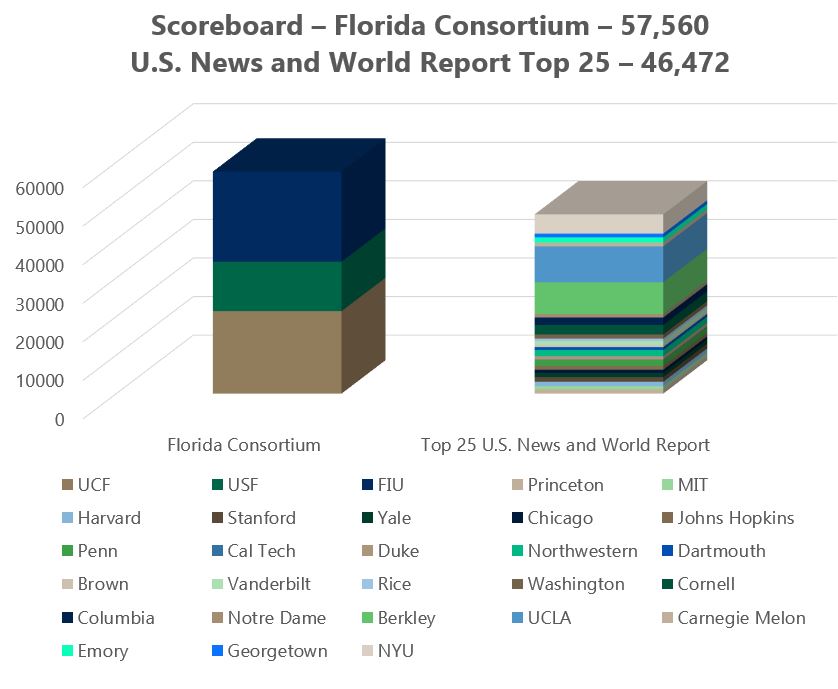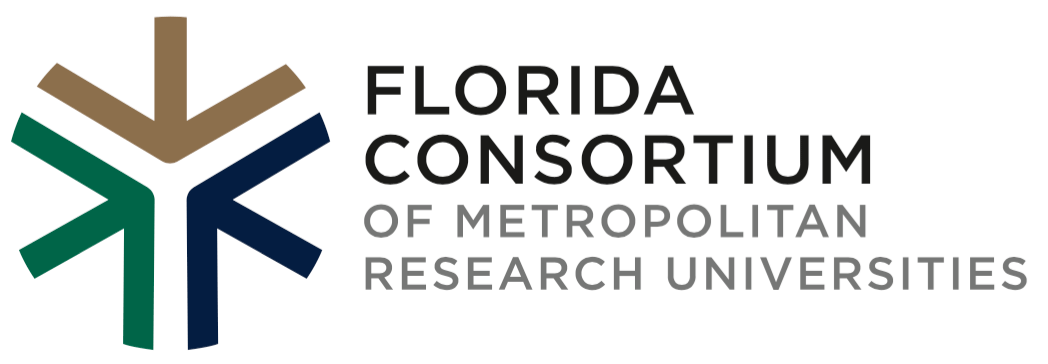Higher education and Businesses in the United States sometimes have a rocky relationship. There is no doubt both need each other. Colleges recruit students to attend college with the prospect of finding a good job after graduation. Business leaders often look to higher education institutions to produce a well-trained workforce. This thirst for talent seldom ends.
According to the Florida Chamber of Commerce, the state needs to create another 1.4 million jobs over our current job inventory to maintain our present economic growth. 65% of those jobs will require a post-secondary certificate or degree. That is a lot of needed expertise to fill our entire educational ecosystem. Whether our state universities are producing that talent is a source of inquiry.
A common complaint from employers is colleges and universities need to do better in producing talented students who are ready to go fresh off the graduation stage. As universities, we do our best to try to accomplish this task. The main issue is, given the vast array of careers and occupational subgenres, fine-tuning each student is a monumental task. However, the faculty and staff of the Florida Consortium seem ready to meet those expectations through a myriad of curricula, student engagement opportunities, career services, and experiential learning.
There appears to be more confidence in our work (more than popular media outlets would have you believe). In 2021 the Association of American Colleges and Universities (AAC&U) surveyed prospective employers. 87% of them believe in the value of a college degree. While companies would consider applicants without a degree insofar as they had the proper work experience and skills, overall, hiring managers prefer college graduates.

Ed Reform Now (2023, May). 2023 Social Mobility Elevator Rankings. EdReformNow.org. https://edreformnow.org/social-mobility-elevators/2023-social-mobility-elevator-rankings/
Why? Because a college degree is, in the words of the Director of Ed Policy for Education Reform Now (ERN), James Murphy, the ultimate “social mobility elevator.” If we can help students develop the skills and knowledge they need for a career, they can skip the stairs of progress and take an elevator to the top of the economic penthouse. In May 2023, ERN released their latest Economic Mobility Elevators rankings, and Florida Universities performed well. The Economic Mobility Index his group releases measures the impact the economic growth a graduate has by attending that university. In this year’s rankings, the members of our Florida Consortium, Florida International University, the University of Central Florida, and the University of South Florida all ranked in the top 3% of colleges and universities for economic mobility. FIU ranked #3, UCF ranked #33, and USF ranked #48 out of 1,429 colleges and universities. The key finding, students who are Pell eligible or a member of a lower Socioeconomic Status are much more likely to graduate with a degree that will land them a job where they can create generational wealth and prosperity.
Florida Consortium Pell Grant Students vs. U.S. News & World Report Top 25 Pell Grant Students

Ed Reform Now (2023, May). 2023 Social Mobility Elevator Rankings. EdReformNow.org. https://edreformnow.org/social-mobility-elevators/2023-social-mobility-elevator-rankings/
While this is good news, we must temper our enthusiasm with a proper amount of context. What our colleges and universities are not doing as well is connecting all our graduates with great jobs. According to the Bureau of Labor Statistics, in 2022, 40% of college graduates ended up classified as underemployed, meaning they were employed, just not in a job that required a college degree. As educators, we should do everything we can to empower students to use their full talents for the career they envisioned. It is a shame when we do not. It is also a shame when employers cannot find the talent, they need for the jobs they cannot fill. According to the Florida Chamber’s Scorecard, there are about 465,000 open jobs in Florida and only 280,000 Floridians looking for work. Imagine what would happen if we connected our students with those unfilled jobs (some that often require a bachelor’s degree, like cybersecurity and nursing); our graduates would make the kind of salaries they envisioned when they first stepped on our campuses for orientation.
Here is where we need our employers’ help. Over the past 18 months, our universities have investigated these gaps in employability and underemployment. We think we know what needs to change. Not only do we need to help our graduates find the hidden jobs in our workforce, but we need to create networks that connect them with these jobs.
In 2018, CNBC reported companies like Indeed or Monster do not advertise 70% of jobs in circulation on mass consumption job boards. That means our students must know where to go to find these jobs, usually listed on company websites or professional association job boards. That is where the networking side kicks in. According to a LinkedIn survey in 2021, 85% of respondents reported the primary modality that landed them the job was a networked connection, that is, someone from their personal network. Someone they knew, told, sold, or recruited for the job. And that is why networking is the key. But here’s the problem. A 2021 Student Voice survey showed 45% of college students did not have a networked mentor.
Social capital is the key to economic mobility, and our universities can be a gateway to that if we have the right network of faculty, staff, and employers working together to make it happen. The Florida Consortium’s members are working on that need. Beginning in the spring, we are working on a plan that incorporates the Florida Board of Governors Taskforce on Academic and Workforce Alignment recommendations with some best practices we currently know about to create better, more hardwired pathways to career success. What immediately stuck out to us as we began discussing strategies for success is how much our students need the strategic introductions that will make their careers. So many of our students arrive without these connections. However, we lack the infrastructure or coordination with employers to make this happen at scale (this is especially true for our small and medium-sized employers). The top 100 employers in Florida only employ 13% of our graduates. Most of our students will eventually find their way to an employer with less than 50 full-time employees.
In the coming months, the members of the Florida Consortium are working on a strategy to scale these social capital contacts and provide more students with the connections they need to succeed. Our plan includes working with regional and statewide organizations like the Florida Chamber and economic development councils to unlock these introductions. We are also developing resources for small and medium-sized employers to assist them in recruiting students into their firms and, once there, onboard them with the unique qualities of Generation Z in mind. While there are many benefits to acquiring a college degree, a good job is at the top of the list. If we can ensure every student has access to these jobs and lands them, then we know higher education in Florida is doing its part to give students a return on their investment. They and our state will be better off for it.



